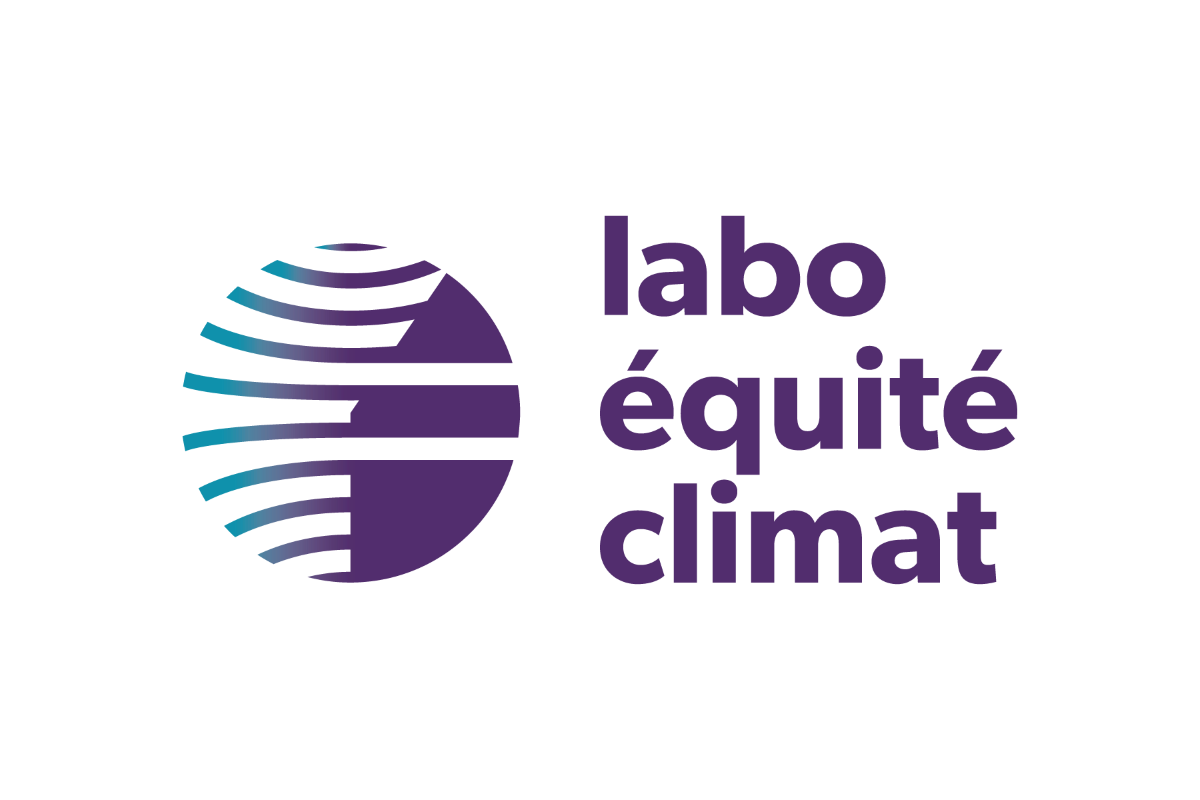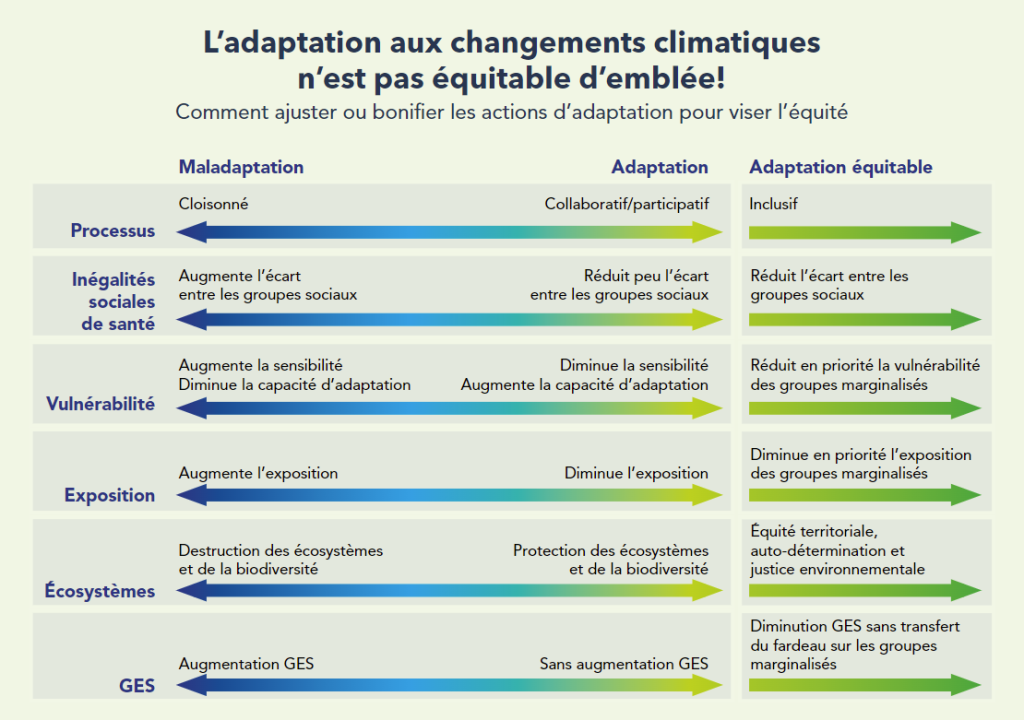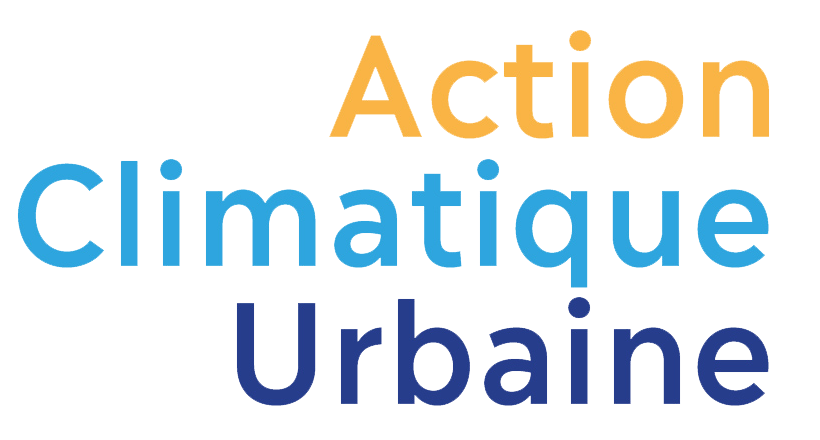
While we know that measures to adapt to climate change are crucial today and will be so in the future, many groups and researchers are concerned about the exacerbation of inequalities induced by the recommended solutions, an issue that is still too little studied and taken into consideration. Scientific literature and field experience show that adaptation measures can generate or exacerbate inequalities in a number of ways: unequal distribution of their effects (distributive justice), disparate opportunities, capacities and effects to participate (procedural justice), and incomplete and unequal recognition of a diversity of knowledge, experience and the intersection of different forms of oppression and discrimination. A number of us have pointed out that participatory approaches and the dissemination of stories and testimonials based on the knowledge and experience of marginalized people have great potential for putting equity issues at the heart of adaptation processes. What’s more, anchoring such approaches in a collective narrative of territories undergoing adaptation can enable dialogue and the emergence of learning. Finally, documenting situations and case studies of adaptation governance can make the processes and levers to be questioned more tangible in terms of their positive and negative impacts on inequalities and adaptation.
In this research, we aim to answer the following questions
1) What are the knowledge gaps about the inequalities produced or accentuated by adaptation measures, and where are the most pressing needs for mobilizing existing knowledge in Quebec?
2) What are some of the governance processes and adaptation practices involved in identifying and recognizing inequalities and, conversely, those involved in exacerbating them?
3) What forms of tools and stories of experience increase the ability of participants in our approach to identify, recognize and act on these processes and elements; how does an open innovation approach of the “living laboratory” type contribute to the mobilization of actors and knowledge for equity in climate change adaptation?
This proposal involves not only research, but also the mobilization of knowledge and the co-construction of tools. In response to Ouranos’ call for a living laboratory, aimed at co-producing tools to raise awareness and support stakeholders on these issues, the Labo Équité Climat proposal is to bring together, in a living laboratory approach, a variety of knowledge and experience that can feed the co-production of an Equity Toolbox for adapting to climate change. To this end, we will:
1) support the production and dissemination of stories of people and communities affected by inequity in adaptation, and of approaches conducive to equity
2) produce fact sheets and capsules (infographics, illustrated written summaries) on the links between adaptation and inequality, based on case studies and literature reviews
3) organize workshops in a variety of settings to encourage the emergence of lessons learned
4) hold a Living Lab Forum in Year 3 of the project.
General objectives of the research project
1) Identify, in climate change adaptation governance and practices, processes that exacerbate inequities and those that, conversely, promote equity.
2) Co-produce a Toolbox for equity in climate change adaptation to :
– build capacity for equitable adaptation
– raise awareness and mobilize adaptation stakeholders
Project milestones
Rooted in living lab approaches and more equitable climate change adaptation needs, the project will follow the following iterative steps:
Step 1- Documentation and needs assessment with the advisory committee
Step 2- Fieldwork planning, story collection and co-production
Step 3- Workshops
Step 4-a Tool prototyping and toolbox development
Step 4b- Cross-cutting analysis and drafting
Research team and governance
The project is co-directed by Sophie L. Van Neste, Canada Research Chair in Urban Climate Action, Nathan McClintock of INRS and Olivier Riffon of UQAC.
The team is organized into sub-poles to ensure a diversity of expertise, networks and territories: INRS co-investigator Xavier Leloup will co-supervise the course on housing issues, given his expertise in this field, with Sophie L. Van Neste. Van Neste. INRS co-investigators Stéphane Guimont-Marceau and Marie-Eve Drouin-Gagné bring expertise in participatory approaches, decolonial methodologies and the experiences of indigenous communities, with Ioana Radu of UQAT working with them, from Université Laval Geneviève Cloutier on local adaptation to climate change and citizen participation, and Jean-François Bissonnette on governance in the forestry and agricultural sectors, from UQAC Marie Fall on intersectionality and adaptation in rural communities, and finally Jean-François Jasmin from the Centre de transfert du Cégep de Rivière-du-Loup on innovation and co-creation processes.
Tools
A first tool was developed in collaboration with the Public Health Department of the CISSS du Bas-Saint-Laurent: S’outiller pour l’adaptation équitable aux changements climatiques – Un continuum pour soutenir la réflexion (Tools for equitable adaptation to climate change – A continuum to support reflection).

